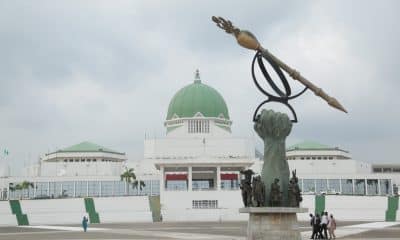Nigeria News
Don’t Sign PIB Into Law Or Else… – Dickson Warns Buhari

Former Bayelsa State Governor, Seriake Dickson has warned President Muhammadu Buhari against signing the Petroleum Industry Bill (PIB) into law.
Dickson said the PIB as passed by the National Assembly is capable of causing fresh uprisings in the Niger-Delta region and therefore urged the President to withhold his assent.
He said before the President should assent the bill, it is necessary to adjust some of the amendments made by the lawmakers to accommodate the five per cent allocation to the host communities so as not to disturb the relative peace in place in the region at the moment.
Dickson, who is the current lawmaker representing Bayelsa West Senatorial District in the National Assembly, stated this while addressing journalists in Abuja on Thursday.
According to him, “We believe that there should be a review of the legislation. There shouldn’t be a signature yet. President Buhari shouldn’t assent to it yet.
“It should be delayed for a more consultative and inclusive work so that while trying to solve problems, you don’t create more problems.
“If the President has not guaranteed security in the North-East, South-East, South-West and North-West, it will be against the national interest to open another frontier of conflicts perhaps in the only region that is enjoying relative stability because of the policies that the late President Umaru Yar’Adua initiated.”
Dickson further accused the leadership of the Senate, under the guidance of Ahmad Lawan of frustrating efforts by the South-South senators to get the support of their colleagues from other regions to approve the five per cent host communities equity share.
He said, “Senator Thompson Sekibo and I were mandated to reach out to other senators who are not in our region and we did. We spoke to most of them and they all supported us for the 5 per cent.
“Before we took that deliberation and the vote, the Minister of petroleum and the GMD of NNPC were invited to give us the executive perspective.
“They told us that it is either we agree to 2.5 per cent or no investment.
“So, I can feel how most members who had earlier given us their commitment felt when they heard the tough position by the executive.
“The minister said there won’t be investment inflow if we approve anything higher than the 2.5 per cent. There was no room for any interrogation, so they left and we started the consideration.”
The Senator stated that he and many other lawmakers from the region were not happy with the bill as passed by the 9th assembly, explaining that what was proposed initially by the administration of the late President Umaru Yar’Adua which introduced the bill was 10 per cent for the host communities and another 10 per cent for frontier development.
He said, “Unfortunately, the bill could not be passed then. The 9th Assembly has been able to pass it but we have to get it right.
“I am not happy with the three per cent that was eventually passed. Most of us disagree completely and that was why I led my other colleagues from the South-South to stage a walk out.
“The argument was that the investors would not come if more than three per cent was approved.
“However I want to state that if the host communities are not happy, the investors will not come.
“Let us be very careful, and that is why I am of the view that the three per cent is not helpful to the host communities, not helpful to the oil companies and also, not helpful to the country.”
The senator added that there is nothing wrong in allocating funds for oil exploration for national interest but the 30% was too much while the host communities get a meagre 3%.
“There are several frontier basins in the country. I know it serves the national interest in exploring more basins but why allocating 30 per cent of NNPC profit to oil exploration when the desire of the host communities were not met.
“They were denied the 5 per cent and this will raise security concerns because the Nigerian security operatives will be overwhelmed and they will need money to work.
“Meanwhile if we said five per cent and the producing communities are on the same page with the government, there will be a secured and safe environment,” he declared.










